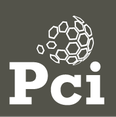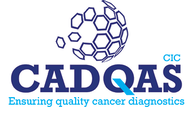Personalised Medicine
Personalised medicine is about using the correct therapy for each individual patient.
Cancer therapy has undergone a radical transformation In the past 10 years. Standard therapies, involving non-specific and extremely toxic chemicals with low cure rates and severe side effects, are being replaced by a new generation of biological molecules.
These molecules interact with specific targets on cancer cells, reducing undesired side effects and increasing treatment effectiveness. The new treatments, generically referred to as ”targeted chemotherapy”, rely on selection of patients most likely to respond well to one of a number of different targeted agents.
Key to the effectiveness of targeted chemotherapy are companion diagnostic tests that help identify the correct therapy for each patient – personalised medicine.
Choosing the wrong therapy because of incorrect test results is harmful to patients, whilst long delays in receiving test results compromise treatment outcomes.
In the past few years there has been a flood of new targeted therapies, each requiring a new companion diagnostic test. Since only a few of these tests are readily available, a major obstacle we face is to provide all new tests timely and with the required quality.
Cancer therapy has undergone a radical transformation In the past 10 years. Standard therapies, involving non-specific and extremely toxic chemicals with low cure rates and severe side effects, are being replaced by a new generation of biological molecules.
These molecules interact with specific targets on cancer cells, reducing undesired side effects and increasing treatment effectiveness. The new treatments, generically referred to as ”targeted chemotherapy”, rely on selection of patients most likely to respond well to one of a number of different targeted agents.
Key to the effectiveness of targeted chemotherapy are companion diagnostic tests that help identify the correct therapy for each patient – personalised medicine.
Choosing the wrong therapy because of incorrect test results is harmful to patients, whilst long delays in receiving test results compromise treatment outcomes.
In the past few years there has been a flood of new targeted therapies, each requiring a new companion diagnostic test. Since only a few of these tests are readily available, a major obstacle we face is to provide all new tests timely and with the required quality.


